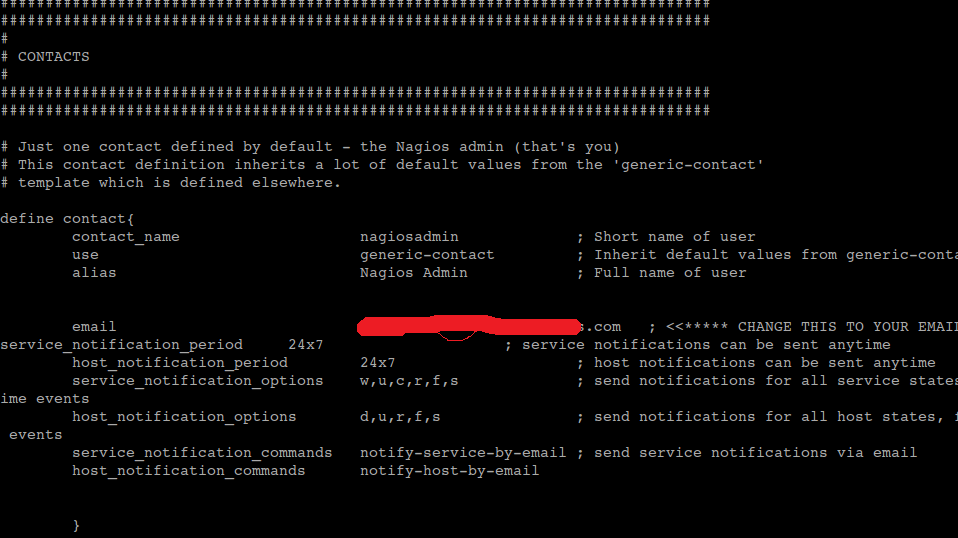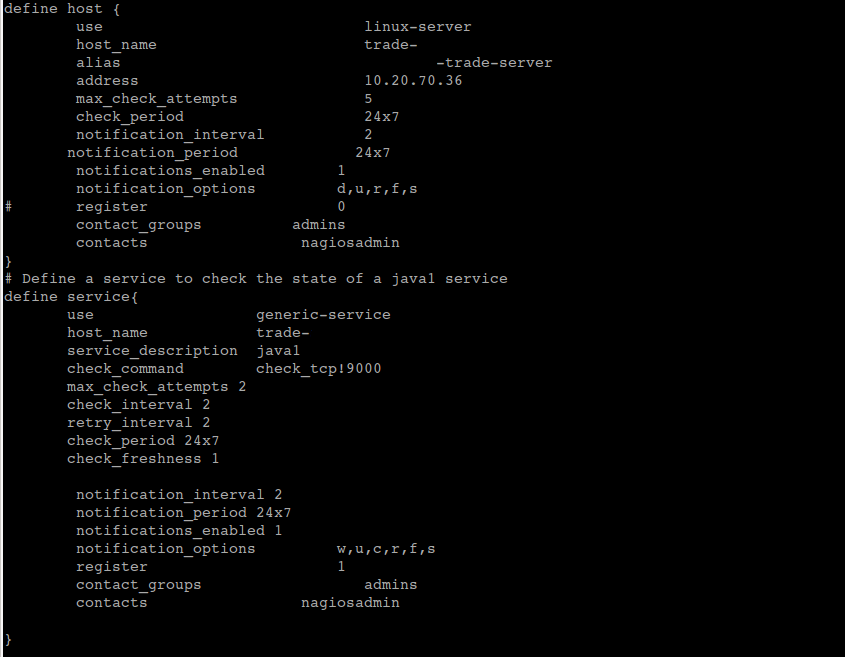Things To Consider While Configuring Nagios
Posted By : Shiv Pujan Maurya | 27-Dec-2017
Hello friends, It’s been long we have been using Nagios in home environments. Instead of creating your own script for each service to be monitored on aws servers it's a good idea to go for nagios. While configuring nagios on aws I faced many issues some were related to security groups and some with email configurations. Let’s begin
For installation purpose you can follow any appropiate blog
After you are done with installation. Lets resolve issue if any of the following:
Issue -1: The first issue is that nagios shows that client machine is down. It is due to all inbound traffic is blocked in aws security group. We need to allow the icmp request and reply rules in SG.
Allow ICMP traffic in EC2 Security groups:
On Client machine
For icmp
For icmp Go to services > EC2> Security Groups> Inbound >Edit Add new rule > ICMP ipv4 : echo request : IP Address of nagios server For default nrpe port Go to services > EC2> Security Groups> Inbound >Edit Add new rule > custom tcp rule : 5666: IP Address of nagios server If you are looking to monitor tomcat nginx or any other service add rules for them as well.
On Server Go to services > EC2> Security Groups> Inbound >Edit Add new rule > ICMP ipv4 : echo reply : IP Address of nagios client Issue 2: while creating service alert I faced issues with email configurations. “unable to look up public/pickup: No such file or directory”.
I searched many blogs but no appropriate solution was found.
To solve this simple clean installation of postfix helped me out.
Issue -3: I faced another issue with email it was due to nagios not getting exact path of mail package. It was looking at /bin/mail which did not exist on my host.
To solve this updated
notify-host-by-email” and “notify-service-by-email” to /usr/bin/mail
“notify-host-by-email” and “notify-service-by-email” to /usr/bin/mail
However this path could be found by typing which mail.

Issue -4: next I did some mis configuration in service mail notification like service notification interval , check freshness , notification period. To solve this I corrected both contacts and host.cfg file
In contacts.cfg do
“define contact{
contact_name nagiosadmin
use generic-contact
alias Nagios Admin
email [email protected]
service_notification_period 24x7 ; service notifications can be sent anytime
host_notification_period 24x7 ; host notifications can be sent anytime
service_notification_options w,u,c,r,f,s ; send notifications for all service states
host_notification_options d,u,r,f,s ; send notifications for all host states
service_notification_commands notify-service-by-email ; send notifications via mail
host_notification_commands notify-host-by-email
}”

In host ( this is the client file for registered hosts to be monitored) I defined blocks as following:
“define host {
use linux-server
host_name trade-server
alias trade-server
address 10.40.40.156
max_check_attempts 5
check_period 24x7
notification_interval 2
notification_period 24x7
notifications_enabled 1
notification_options d,u,r,f,s
register 1
contact_groups admins
contacts nagiosadmin
}
# Define a service to check the state of a java1 service
define service{
use generic-service
host_name trade-singapore
service_description java1
check_command check_tcp!9000
max_check_attempts 2
check_interval 2
retry_interval 2
check_period 24x7
check_freshness 1
notification_interval 2
notification_period 24x7
notifications_enabled 1
notification_options w,u,c,r,f,s
register 1
contact_groups admins
contacts nagiosadmin
}
“

After you are done with all this just restart the nagios service. This sort of configuration updates did the task for me. May be helpful to you.
Thank You for reading my blog.
Cookies are important to the proper functioning of a site. To improve your experience, we use cookies to remember log-in details and provide secure log-in, collect statistics to optimize site functionality, and deliver content tailored to your interests. Click Agree and Proceed to accept cookies and go directly to the site or click on View Cookie Settings to see detailed descriptions of the types of cookies and choose whether to accept certain cookies while on the site.










About Author
Shiv Pujan Maurya
Shiv is a Redhat certified engineer with B.Tech in Computer Science & Engineering. He is passionate about new technologies specially in DevOps and Artificial intelligence.